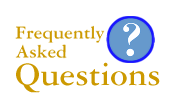Common Document Management Questions

This section attempts to answer some of the common questions and concerns
people have about document management — what it is,
what it isn't and what the things are to consider if your organization is
looking at document management technology.
These questions and answers are not a product
round-up or definitive text on document management, but rather a "starter-kit"
to help you get pointed in the right direction when looking at all the issues
when documenting the ISO processes.
We hope you'll find the questions useful.
Tadd W. Uttke

Table of Contents
- What is document management?
- What is a document?
- What are the most common symptoms of a document management problem?
- What's the magnitude of the problem?

 What is document management? What is document management?
Document management is a means of organizing documents and data and
coordinating the processes for developing, revising, tracking and distributing
these documents throughout a lifecycle, which might last for days, years, or
even decades.
The benefits achievable with document management are significant:
- Less time spent looking for information and documents
- Increased accuracy — a way to ensure documents draw on the latest
information available
- Shared access to documents and data, eliminating rekeying and other
redundant efforts
- Overall productivity gains from working smarter

 What is a document?
What is a document?
It used to be obvious. Now it like "the taste of cinnamon": everyone knows
what it is, but no one can describe it.
But a document, at least, has something to do with the presentation of
information in a structured form using text and graphics which are laid out on
pages (or, in the case of electronic documents, on computers screens).
Documents are the best way of communicating information.
Whether your customer is presenting a request for information (RFI) to you,
or you are responding with a proposal, documents are the way that we communicate
the information that really counts.
Documents are the best way of developing information.
If we are collaborating on a business opportunity, documents are the way that
we develop information. You send me a FAX identifying the opportunity. I respond
with marketing material. We draft an outline of a proposal, and so on.
Documents are the way that we develop information together.
Today, most of these documents are in file cabinets, in piles, on desks or on
individual PCs and workstations in a wide range of software applications.
Documents begin at the desktop and flow out to the workgroup, the department,
the enterprise and the customer. Businesses depend on documents as the
currency of strategic information — for
providing product information, for outlining work instructions, policies and
procedures, and for carrying out the legal contracts that drive the business.

 What are the most common symptoms
of a document management problem? What are the most common symptoms
of a document management problem?
Can you answer yes to any of the following questions?
- Are documents critical to your business?
- Are you spending more time hunting for documents than using the
information in documents?
- Do you think that you don't always have the right information at the right
time or have the latest information quickly enough?
- Does paperwork or documentation cause delays in bringing projects to
completion and products to market?
- Do you often start from scratch because tracking down existing information
is too difficult?
- Do you wish that you could better share and re-use information in
different places and keep just one copy instead of several?
- Would you like better collaboration and coordination of your document
creation and review cycles?
- Do you worry that your documents aren't properly secured, backed up or
archived?
If you recognize these symptoms, chances are you've got a document management
problem. Which brings us back to management. Document management
brings order to this dynamic, constantly changing world, by providing a
structure that makes work processes easier and more effective. Document
management provides office workers with a quick and easy way to find
information and know that what they've found is accurate and up to date.
Document management also helps the office worker develop information by
enabling re-use of the existing document database and by ensuring that the right
information gets to the right people at the right time.

 What's the
magnitude of the problem? What's the
magnitude of the problem?
Huge. And growing. Gartner estimates the U.S. businesses
create over one billion documents a day. So whether your business is
engineering, insurance, electronics, finance or telecommunications chances are
you're helping generate these billion documents.

| 